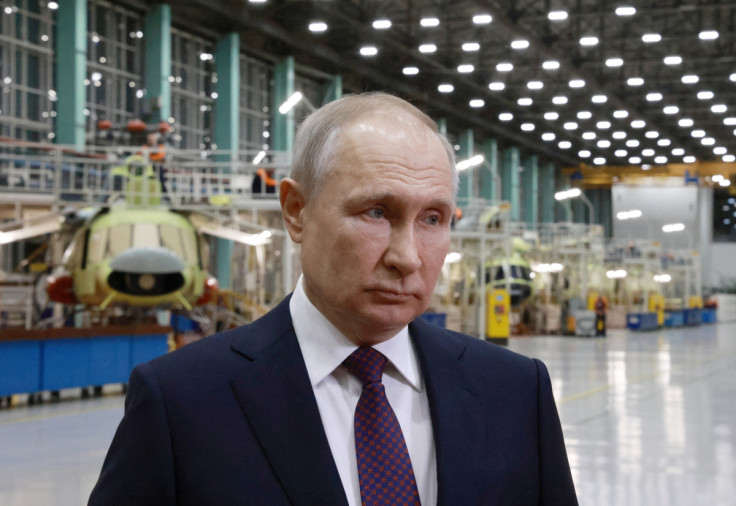Putin threatens to escalate attacks in Ukraine if UK provides uranium-based ammunition
Though the British defence ministry and the White House have dismissed the Russian accusations, but the ammunition carries risk even if it's not a nuclear weapon.

Vladimir Putin promised on Tuesday to "respond" to the British intention to provide Ukraine with weapons.
Putin claimed that depleted uranium-containing armour-piercing rounds are included in some of the munitions that Britain is delivering to Ukraine. He warned that if the delivery happens and if Kyiv receives weapons that have nuclear components, Russia will retaliate.
"The United Kingdom ... announced not only the supply of tanks to Ukraine, but also shells with depleted uranium. If this happens, Russia will be forced to respond accordingly, given that the West collectively is already beginning to use weapons with a nuclear component," Putin said.
Putin made the remarks following his meeting with Chinese President Xi Jinping, during which they agreed to usher in a "new era" in their bilateral relations.
There are "fewer and fewer steps" to a nuclear exchange, said Sergei Shoigu, Russian minister of defence.
He added to Putin's threat by stating that a nuclear catastrophe is only a few "steps" away. "Another step has been taken, and there are fewer and fewer left."
He was questioned if this indicated that the world was getting closer to a nuclear war, to which he responded, "It was not by chance that I told you about steps. There are fewer and fewer."
Meanwhile, Russian foreign minister Sergey Lavrov also warned that the British "have lost their bearings" and the munitions are "a step toward accelerating escalation."
Depleted uranium is used in weapons because it can pierce armour and tanks. A health concern can arise if dust enters people's key organs and food.
When asked about the ammunition, Shoigu said, "Naturally, Russia has something to answer this with."
Both the British defence ministry and the White House dismissed the Russian accusations. But the ammunition does carry risks even if it's not a nuclear weapon.
What is depleted uranium?
As a byproduct of the process used to produce the rarer, enriched uranium utilised in nuclear fuel and bombs, depleted uranium is produced. Depleted uranium is denser than lead, which makes it desirable as a projectile while being significantly less potent than enriched uranium and unable to cause a nuclear reaction.
"It's so dense and it's got so much momentum that it just keeps going through the armor — and it heats it up so much that it catches on fire," RAND nuclear expert and policy researcher Edward Geist said.
When fired, a depleted uranium munition becomes "essentially an exotic metal dart fired at an extraordinarily high speed," RAND senior defence analyst Scott Boston said.
Russia's accusations were criticised by the White House as false information.
"Make no mistake, this is yet another straw man through which the Russians are driving a stake," U.S. National Security Council spokesperson John Kirby said.
IAEA's take on depleted uranium
Depleted uranium, according to the International Atomic Energy Agency (IAEA), is primarily a poisonous chemical rather than a radiation risk. Aerosol particles can be breathed or consumed; while most would be expelled some could reach the bloodstream and harm the kidneys.
Putin's commanders engaged in feud
Meanwhile, as Putin asked China's Xi for urgent military assistance, two of his top battle commanders were engaged in a nasty feud. Yevgeny Prigozhin, the leader of the private Wagner group, publicly warned Shoigu that failing to act quickly could result in the loss of all military advances made in Bakhmut.
Shoigu reportedly avoided Prigozhin, who shortly after called the defence minister's fitness blogger son-in-law a "scumbag."
When the Wagner leader recently accused Shoigu of refusing to supply ammunition and shells for the private army, he reportedly responded by disconnecting Prigozhin's phone lines to the military's top leadership.
© Copyright IBTimes 2025. All rights reserved.





















